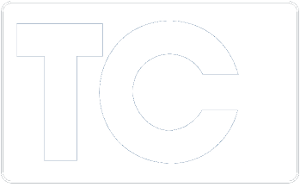The healthcare industry has always been at the forefront of safeguarding sensitive patient information, a responsibility that has become even more crucial in the post-pandemic era. With the rapid shift to digital communication channels and telehealth services, adhering to communication compliance regulations is not just a legal obligation but a cornerstone of patient trust and safety.
We’ll explore why healthcare communication compliance is paramount today and how it shapes the industry’s future.
The Rise of Digital Healthcare and Compliance Challenges
The COVID-19 pandemic has accelerated the adoption of digital technologies in healthcare. Telehealth consultations, electronic health records, and digital patient portals are now commonplace. While these advancements improve accessibility and efficiency, they raise significant compliance concerns regarding data privacy and security.
Ensuring Secure Communication and Data Protection
To protect patient information, healthcare providers must ensure secure, encrypted channels for communication and adhere to standards like HIPAA. Secure patient identification processes and data encryption are critical to maintaining compliance.
The Complexities of Telehealth Compliance
Telehealth has emerged as a vital tool for providing healthcare remotely. However, this convenience also introduces complexities in maintaining communication compliance. Healthcare providers must ensure that their telehealth platforms comply with regulations, such as data encryption and secure patient identification processes.
The Impact of Emerging Regulations on Operations – 2023 CMS Final Rule
New regulations are always on the horizon. For example, The Centers for Medicare and Medicaid Services (CMS) issued a final rule in response to address complaints of inappropriate marketing practices by Medicare Advantage organizations and Third-Party Marketing Organizations (TPMOs). The rule requires all TPMOs to adhere to all applicable laws, regulations, and CMS guidelines, including the requirements for conducting lead generation, marketing, selling, and enrollment activities with Medicare beneficiaries.
This meant that insurance companies and TPMOs, including healthcare agents and brokers, were now required to record all “marketing” calls with beneficiaries, including the enrollment process. This rule applies to both new and existing clients of the organization. The call recordings must then be stored HIPAA-compliant for at least 10 years – which almost certainly means higher operational costs for the affected companies. And that’s just one of the over 600 regulations that could potentially update their rules regularly, keeping every company’s compliance officers on their toes.
Educating Healthcare Staff and Safeguarding Patients’ Trust
With emergent technologies and communication channels, educating healthcare staff on compliance is crucial. Regular training sessions about the latest compliance regulations and the proper handling of patient information can mitigate risks associated with data breaches and non-compliance.
The Cost of Non-Compliance with HIPAA
Often, non-compliance leads to severe legal and financial consequences for healthcare organizations. From 2020 to 2022, the fines and penalties for violating HIPAA amounted to about $22 million. On top of that, the financial impact of ensuring data protection laws like HIPAA is also substantial, with the American Hospital Association reporting that the healthcare industry spends $39 billion every year on the administrative aspects of regulatory compliance.
Leveraging Technology to Ensure Compliance
So, how does one navigate this seemingly ever-changing landscape? The short answer is embracing technology as an ally. Leveraging technology can be a game-changer in ensuring compliance. Mitel Interaction Recording (MIR), powered by ASC Technologies, has tools that monitor communications and flag potential compliance issues that have been proven to help healthcare organizations remain compliant with healthcare standards and regulations. MIR is at the forefront of delivering the highest levels of compliance across several industries with features that include:
- Highest security standards with encryption
- Flexible recording rules
- Powerful search and easy replay with strong access rights controls
- Identifying calls that contain personal data
- Automated compliance screening and alerting
The Imperative of Healthcare Communication Compliance
In the post-pandemic age, where digital communication in healthcare is more prevalent than ever, fulfilling communication compliance regulations is not just a regulatory requirement but a critical component of patient care.
Connect with a TCI expert to ensure your UC technology is protecting your patients and your organization. Contact TCI today at (703) 321-3030 or GetHelp@tcicomm.com.

